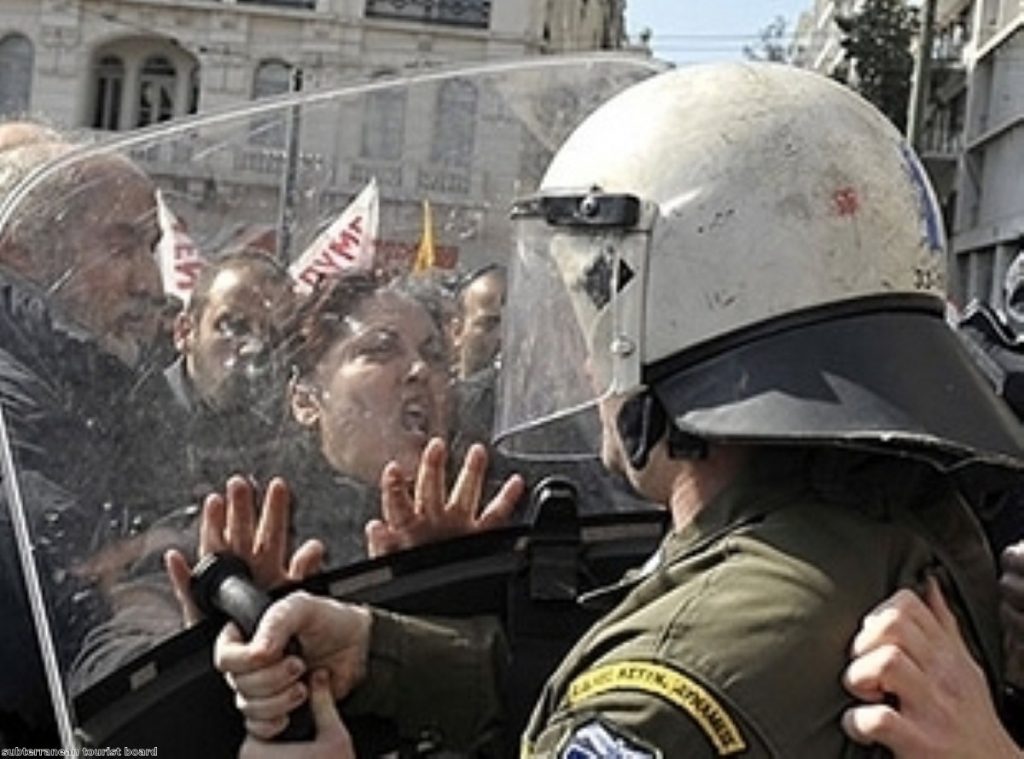Eurosceptics secure Cameron pledge over Greek bailout
By Ian Dunt Follow @IanDunt
Eurosceptic backbenchers have secured a pledge from David Cameron not to put any British money towards the bailout of Greece.
Leading Conservatives earlier issued a pre-emptive strike against any efforts to involve Britain, amid continued talks in Brussels.
"The British, as we're not members of the eurozone, have not been involved in these discussion at all, so it would be quite wrong now to ask us to contribute," the prime minister said.


"We have contributed. In the case of Ireland we made a bilateral loan, in the case of Portugal, we contribute. But this is a different situation, a different country and I don't believe the European financial mechanism is appropriate."
Fourteen new Tory backbenchers, led by former MEP Chris Heaton-Harris, signed a letter to the Financial Times demanding the British taxpayer was protected from the ongoing negotiations this morning.
"We are concerned that the solutions to the crisis proposed by eurozone countries amount to no more than 'throwing good money after bad' and will further expose the British taxpayer to any future economic meltdown," the MPs wrote.
The 14, who include Priti Patel, George Eustice and Dominic Raab, are considered a promising force of euroscepticism in some quarters. Their calls for robust EU reform are mainstream enough to avoid a demand for full withdrawal but remain staunchly critical of the European project.
The letter demanded protection of British taxpayer money in subsequent bailouts, a reduction in EU waste and greater British benefits for its contribution to the EU budget.
Over in Brussels, the Greek government continues to tiptoe the dangerous line between public protests and EU and IMF demands.
Failure to negotiate new funding would see Greece become the first eurozone country to default on its sovereign debt, an event which would have serious ramifications in the global economy.
But the government is struggling to get a draft law outlining its austerity plan through parliament in the face of daily demonstrations and widespread public animosity.
The Cabinet approved the plan yesterday but parliamentary approval will be needed next week. Without it, the EU and IMF are unlikely to agree to the new 120 billion euro (£107 billion) bailout.
Greek media reported that the government failed to convince IMF and EU chiefs of a plan to levy a one to three per cent charge on higher earners, in a desperate bid to avoid lowering the income tax threshold.
The threshold idea is explosive in Greece, where lower income groups warn that they will not have enough to survive if it drops below 12,000 euros a year.
Prime minister George Papandreou's Socialist party (Pasok) is smarting from the tumultuous political events and he was forced to implement a reshuffle recently to harden resolve at the top of government.
That change allowed the new finance minister to meet with EU and IMF inspectors on new terms today, as the two parties tried to iron out their differences.

